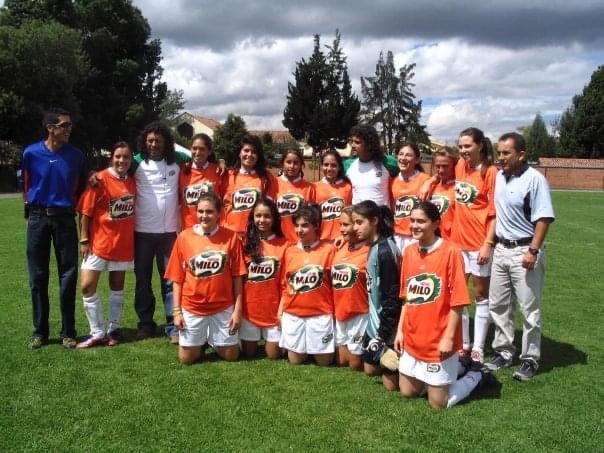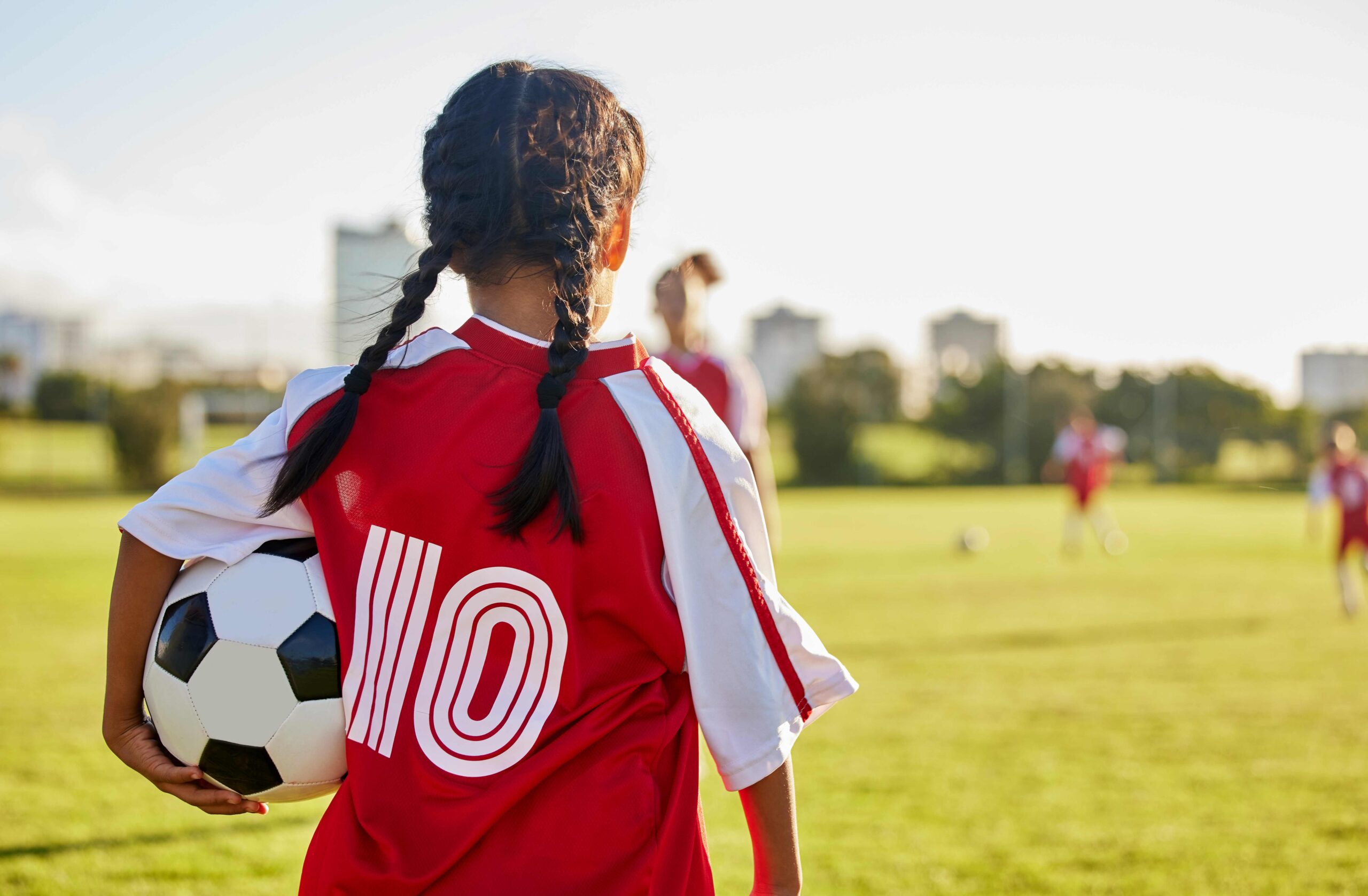“Soccer is not for girls”
I was almost 10 years old when I started playing soccer. That year, my dad traveled for work to France and came back home with souvenirs for me and my brother from France ’98. I got a stuffed toy of the mascot, and my brother got the official soccer ball. He had never actually played the sport competitively. The year after that, my school’s soccer team ranked third in the first championship we participated in. We got Barbie dolls as a trophy. The boys’ team got gear and sponsorship for the next season.
It was not until age 16 that I finally told my parents I was playing soccer. I had lied for the past 6 years saying I was doing other extracurricular activities to be able to train because when I first mentioned my interest in the sport the response was: “Soccer is not for girls. Girls are not meant to be kicking around”. These stereotypes have affected women and girls across sports (and other industries) for decades. While being gifted a stuffed toy or a Barbie doll is most certainly not a crime, it is a metaphor for how societies view our place in sports. However, discrimination, unequal pay, and sexual abuse are behaviors societies should condemn, convict, and transform.

The Women’s World Cup: has anything changed?
July 2023 is the start of the ninth Women’s World Cup and the start of the first-ever tournament where women will be paid by FIFA as they advance to the next rounds of the competition. According to Bloomberg, “the women’s prize pool has grown from zero 20 years ago to US$110 million this year. Of that, the winning team in this year’s tournament is set to receive US$10.5 million”. The tickets for the inaugural game are sold out, with over 80,000 spectators. The World Cup is on track to become “the most attended standalone women’s sporting event”.
We’ve come a long way. The United States, Norway, Australia, and The Netherlands, are among the countries whose soccer federations have committed to closing the gender pay gap. Leonel Messi now promotes women’s soccer. But inequalities for women in the sport are still present. Sports outlets still underpay for the rights to broadcast the Women’s World Cup. In Latin America and the Caribbean, female players who speak up about their poor working conditions in the sport often see retaliations.
Sports as a Tool to Promote Equality
Impact evaluation by the United Nations indicates that sports are a powerful tool in developing countries to engage communities and prevent crime, violence, and youth drug use. Sports can also be a critical tool to develop 21st-century skills that will be demanded by employers in the future of work.
According to an IDB publication, by playing sports, “a person can learn cooperation, communication, respect, conflict resolution, leadership, the value of effort, playing fair, self-esteem, honesty, self-love, tolerance, perseverance, and discipline”. These are all skills that are critical in a digital society. Additionally, some of these socio-emotional skills can have a positive impact on issues like lowering teenage pregnancy rates. However, more evidence on the impact of these programs is needed when it comes to differentiated outcomes on women and men, girls and boys.
Rooting for equality and inclusion
The IDB has promoted sports as tools for inclusion through partnerships with institutions like the Club Atlético Real Madrid and the International Paralympic Committee. This work stands behind the idea that sports can be a booster for equality and inclusion not only for girls and women, but also for diverse and vulnerable populations.
So let’s enjoy the Women’s World Cup, I will certainly be rooting for my home country. But let’s do so with the understanding that:
- Not every woman at that stage has the work conditions they should nor the institutional support they deserve.
- What we say about women’s participation in sports matter.
- The women in our screens are role models we should encourage our kids to follow.
And finally, that soccer to women and girls can mean much more than a game.


Leave a Reply